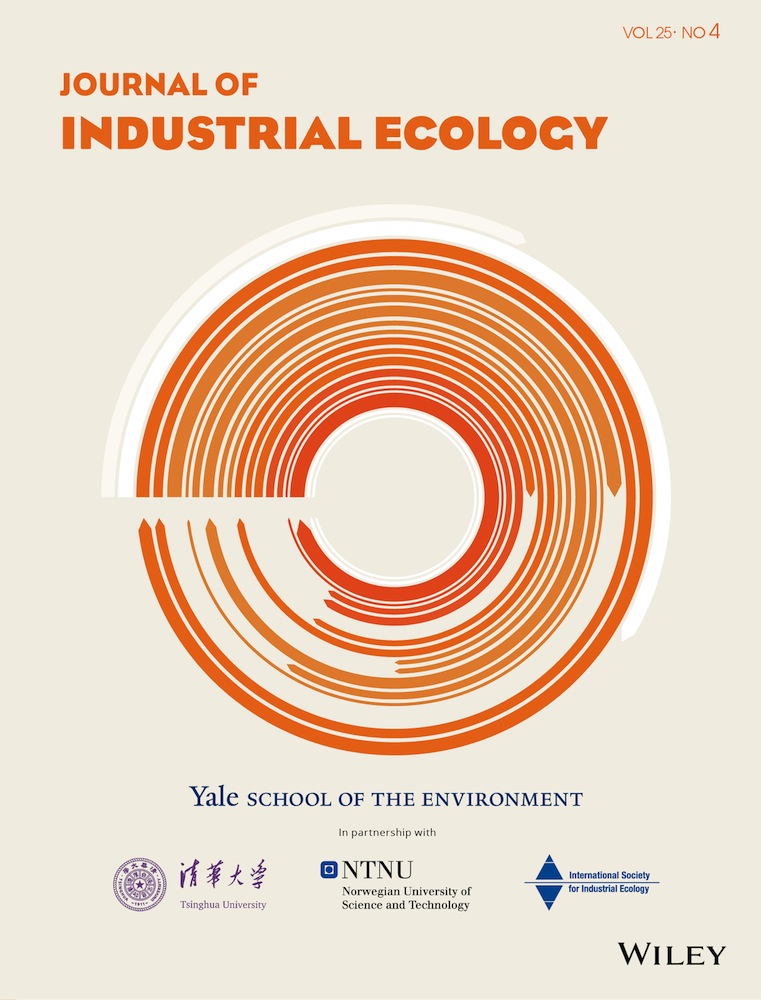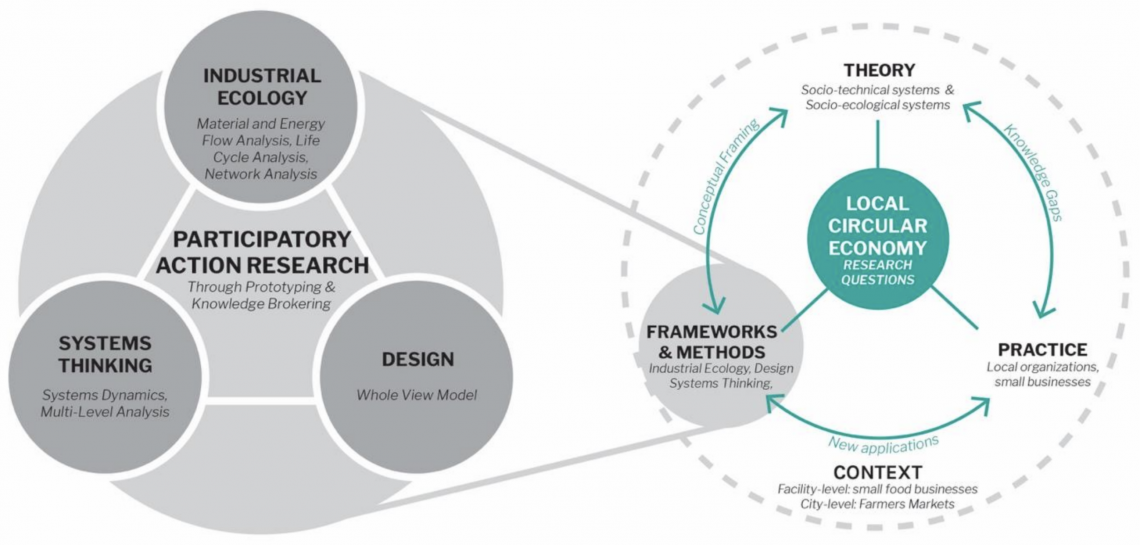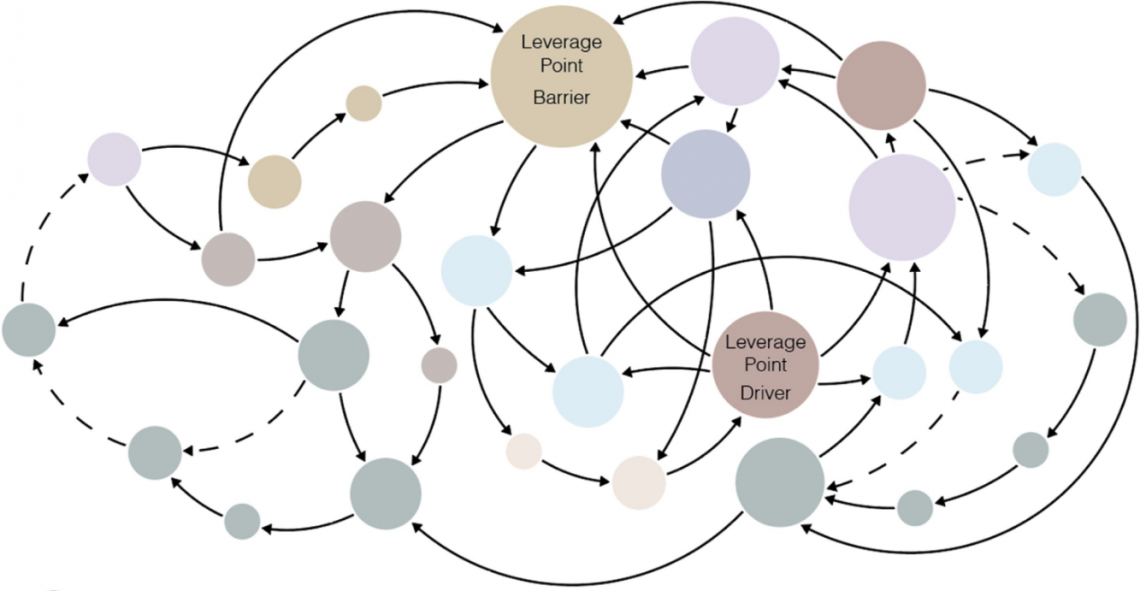
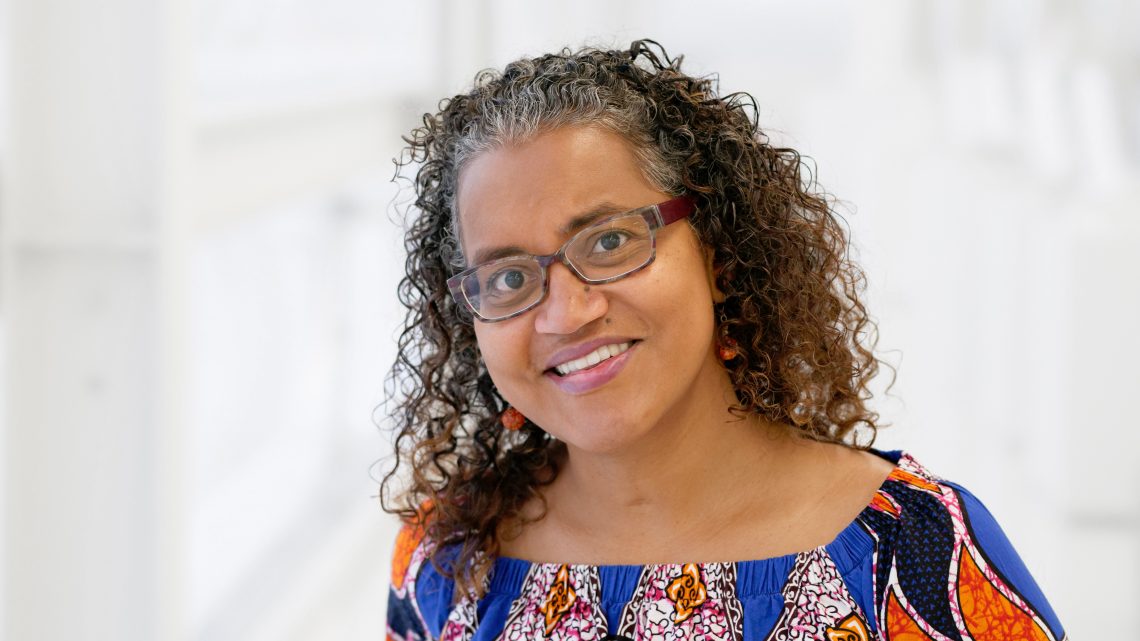
Weslynne Ashton
In the United States, it’s estimated that up to 40 percent of food produced is never eaten. Food is being wasted at every step of the food supply chain that connects farms to forks—from production to distribution to stores, restaurants, and consumers.
It doesn’t have to be that way, says Associate Professor Weslynne Ashton. Weslynne, who has a joint appointment at the Institute of Design and the Stuart School of Business, is a sustainable systems scientist whose current work focuses on the circular economy and on increasing sustainability and equity in urban food systems. She’s part of a network of researchers aiming to change the status quo and find ways to reduce wasted food nationally, supported by $15 million in funding over the next five years from the National Science Foundation (NSF).
The project, Multiscale Resilient, Equitable, and Circular Innovations with Partnership and Education Synergies (RECIPES) for Sustainable Food Systems, brings together more than 40 researchers at 14 universities and institutions across the country, led by American University.
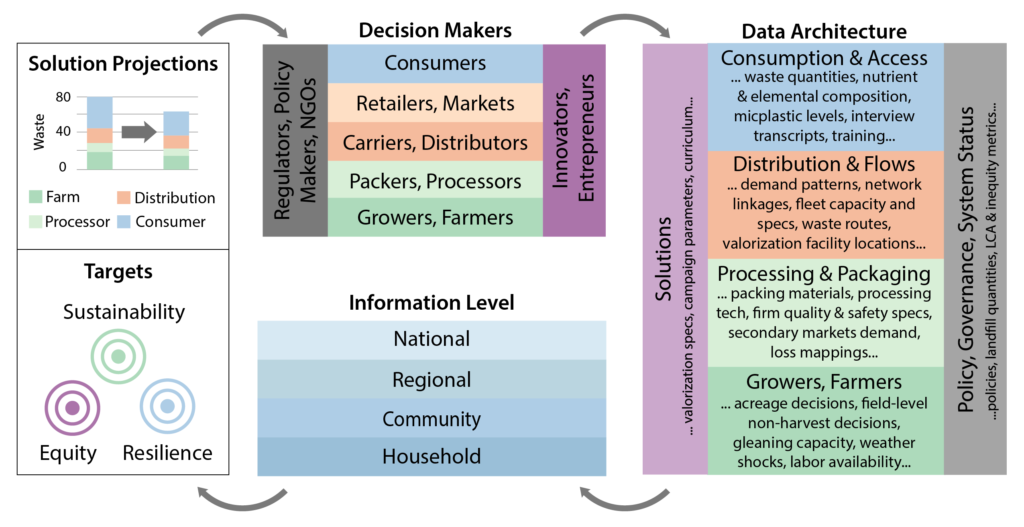
Visualization of the RECIPES database structure which will aggregate information from other databases using a common ontology, capture RECIPES output, and be made publicly available and accessible for researchers
The RECIPES team includes experts drawn from environmental science, engineering, economics, anthropology, design, and other fields. According to Ashton, building partnerships with people, businesses, and organizations that work directly in all aspects of the food supply chain will be crucial to the project’s success, first in developing approaches to reducing and repurposing food waste that are workable and then in implementing changes that are equitable, sustainable, and resilient.
“The food industry has been wonderfully successful at increasing the supply and distribution of food across the world, but climatic and ecological impacts of wasted food have historically been overlooked,” Ashton says. “Current efforts to address this challenge have varied from very grassroots and community oriented to local government initiatives to private investment and industry coalitions. With RECIPES, we’re trying to pull information together from multiple sources nationally and investigate how to use that data for more comprehensive solutions.”
Ashton and Illinois Tech are the only RECIPES partners in the Chicago area, representing the Midwest in the project along with researchers at the University of Illinois at Urbana-Champaign and The Ohio State University.
Funded by the grant, she will hire an Illinois Tech doctoral student and an undergraduate as research assistants to help her map the type and amount of wasted resources related to food in the Chicago region.
“We want to tap into activities that are already happening in Chicago, from very small scale projects to larger scale, and assess the value and trade-offs of different choices,” Ashton says. “When I talk about value, it’s not only economic value. There’s also social and cultural benefit, ecological health such as building soil quality, and engaging the community through entrepreneurial opportunities in the process.”
Ashton points to initiatives in Chicago during the past decade to develop urban agriculture, health, and food waste hubs that provide food, income, and health services to the communities in their vicinity, such as Plant Chicago and Green Era. She plans to investigate the potential of a network of such hubs to optimize wasted food resource flows while creating holistic benefits for communities across the region. She will also lead co-design workshops, hosted by Illinois Tech, for urban and rural stakeholders in the Chicago area to collaborate and co-develop innovative solutions for wasted food management that serve business, social, and ecological needs.
